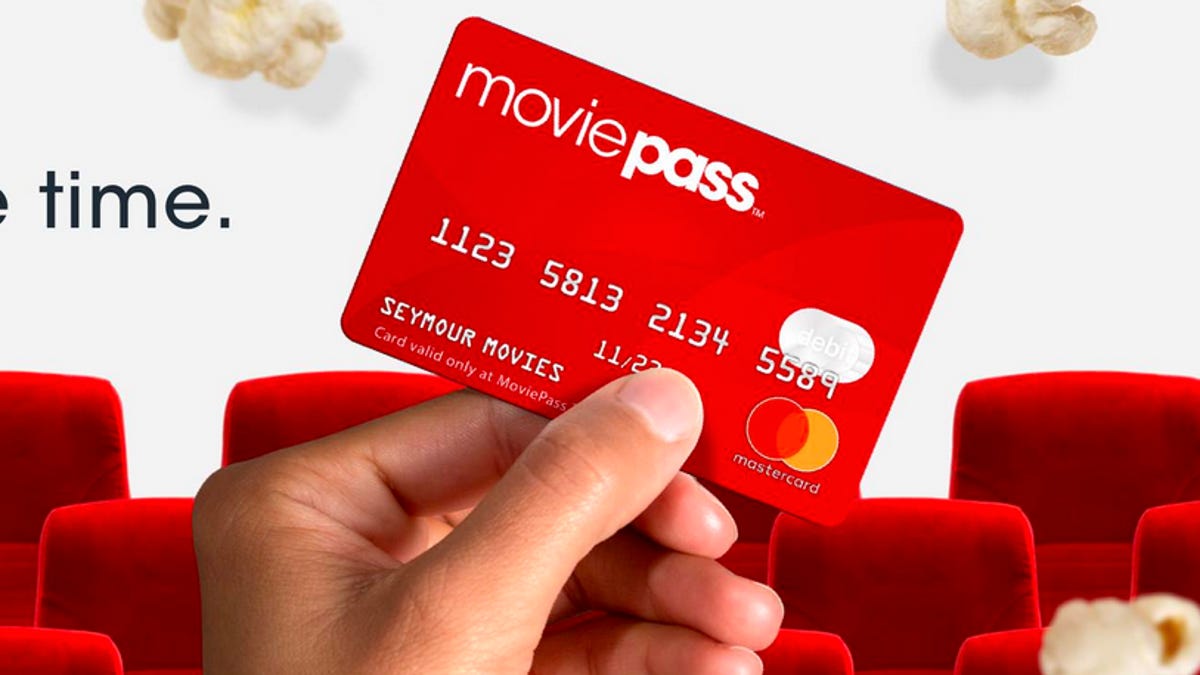The one thing nobody understands about MoviePass
Commentary: This is why MoviePass died. At least, the MoviePass we loved.

I've heard the joke a hundred times: MoviePass' original concept failed because it gave away free money to subscribers.
MoviePass Attempts To Increase Profitability By No Longer Mailing Out Free $500 A Month To Subscribers https://t.co/2szUIcrpz1 pic.twitter.com/Tq5tc0cebi
— The Onion (@TheOnion) August 16, 2018
It's funny because it makes sense! If you pay $10 a month for MoviePass, and MoviePass pays for all the movie tickets you want... they're losing money after the second, maybe even the first ticket you use. (My local AMC charges upwards of $10 per ticket.)
But it wasn't supposed to be that way forever. A year ago, MoviePass CEO Mitch Lowe told me that theaters would eventually give MoviePass those same tickets at a discount. Or share some of the money they make on popcorn, soda and candy, which subscribers would buy with their MoviePass card as well.
"If we can get people to the theaters more often and make the studios more money, we believe they'll share the revenue and profits," he told me one year ago.
The former Redbox and Netflix exec also shared this anecdote:
When we started Netflix (in the by-mail days), we realized we had more demand for hit titles than we could satisfy, so we went to the studios and said, "Give us three times the copies for twice the price." They said, "Why should we do that?" So Netflix went out and bought its own movies at three times the norm and showed the studios that revenue sharing could maximize their returns... and now today everyone is on revenue sharing. It became the norm.
We bought the movies from the studios at the rate of roughly $16 per disc. We realized if we bought three times the copies, we could generate twice the revenue for the studios and for us. After a period of time, the studios go god, yeah, we can maximize our revenue by spending an extra buck and a quarter to make another copy of the disc so we can satisfy demand and you can share more money with us.
We're taking a page right out of that handbook.
But when I spoke to Lowe again early last month -- just a couple weeks before MoviePass became a shadow of its former self -- he all but admitted that the MoviePass revenue sharing plan had gone nowhere.
According to Lowe, MoviePasswas still paying full price for 94 percent of movie tickets as of July 2018 -- the exact same percent he quoted to me one year ago.
Because, of course, when the big theater chains caught wind that MoviePass's idea was catching on, they decided to launch their own plans instead of playing ball. Which meant that AMC was only paying the minimum $5-6 that studios require per ticket, according to Lowe, while MoviePass might have to pay far more.
Lowe told me that as of July, MoviePass was paying full price for over a million AMC tickets every month -- tickets it couldn't get a discount on.
That may not be the only reason MoviePass failed in its current form. The company was also counting on a larger population of people who watch between 3 and 12 movies a year to balance out the few who'd watch 20 a month, and that math could have been wrong.
MoviePass CTO Mike Berkley told me there was a lot of fraud and waste, too: "People would do things like scalp tickets as a supplemental income source for themselves, or validate parking... when you put money in people's pockets, they find all kind of ways to take advantage and exploit it."
But the big reason MoviePass failed was because it couldn't make the right deals to bring down the price of those tickets -- the main thing it needed to survive.

